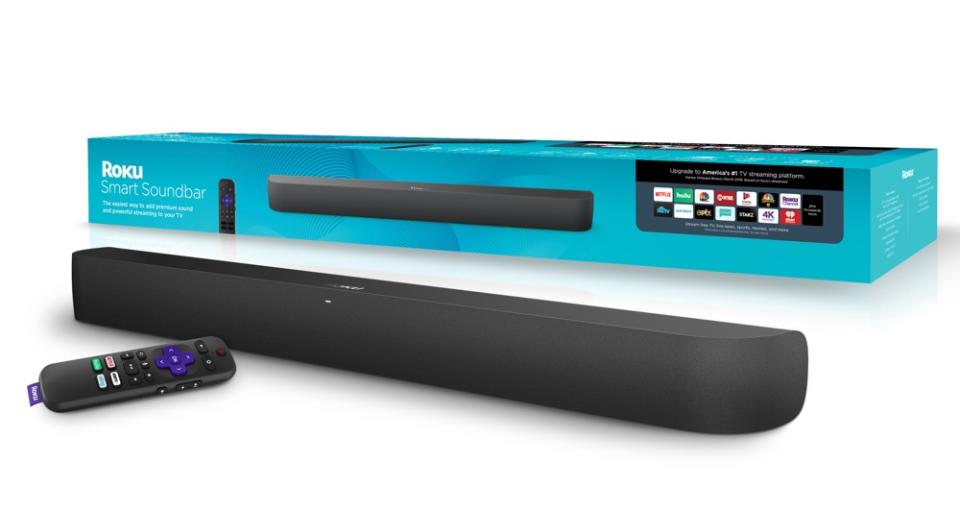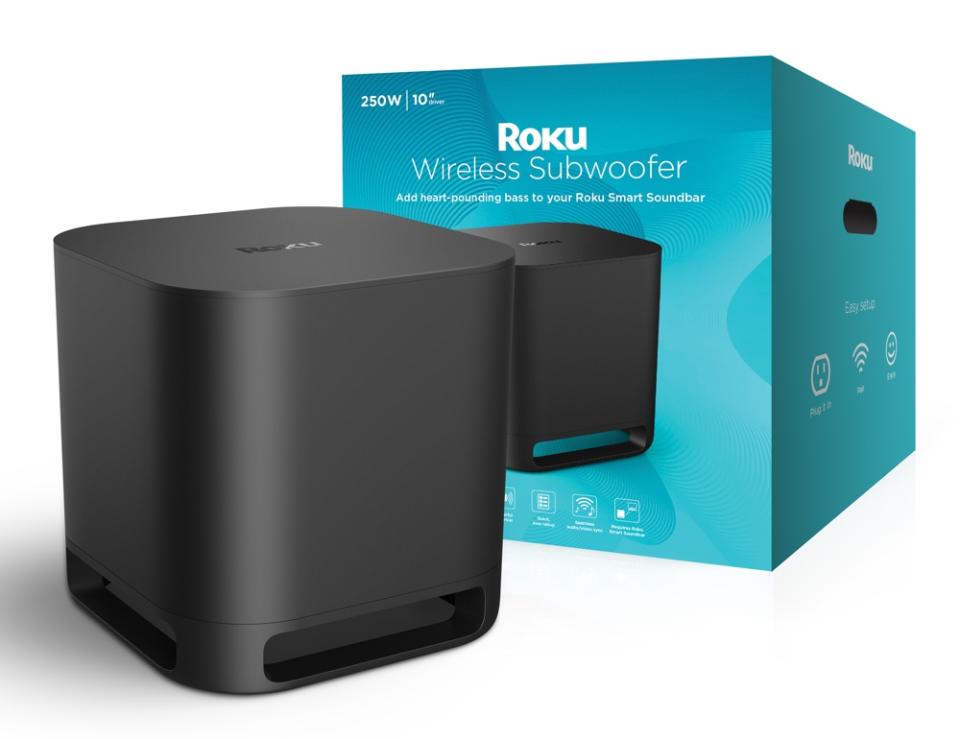Roku debuts $179 Smart Soundbar and $179 Wireless Subwoofer
Roku (ROKU) wants to improve how you hear your favorite shows on its devices, and keep you hooked to its ecosystem of products, which is why the streaming giant is rolling out two new audio products that will give you one more reason to stick with the brand.
The Roku Smart Soundbar and Roku Wireless Subwoofer are designed to enhance the sound quality of your shows, movies, and music by pumping out clearer and deeper audio than your TV’s measly built-in speakers.
But it’s the price of these new offerings that’s sure to catch consumers’ eyes. At $179 each, the soundbar and subwoofer are priced at a sweet spot that should capture plenty of attention. Similar setups can cost upwards of $400.

The soundbar itself also doubles as a Roku player, so you can use it to control everything from Netflix and Hulu to upcoming services like Disney+ and Apple TV+.
What’s more, buying Roku speakers gives users more of an incentive to stick with the streaming service, helping to keep the company’s platform reach stable.
Bring the noise
Roku is no stranger to audio products. Last year, the company launched its Roku TV Wireless Speakers for $199. The speakers were a fantastic product, offering drastically improved audio quality to my standard TV speakers. But there was just one problem: They only worked with Roku TVs.
That means if you had a Samsung, LG, Sony, or any other TV not powered by Roku’s operating system, you couldn’t get the speakers. It was a bummer to say the least.
The Roku Smart Soundbar, however, works with any TV as long as you have an HDMI ARC port or optical audio port. ARC stands for audio return channel and allows you to use a single HDMI port to connect a speaker to your TV. Once connected via the ARC port, your speaker will work with every other product connected to your TV, as well.
Say, for instance, you have a game console and want the audio to output through your soundbar. The ARC port lets you do that with a single cable, since it is taking the audio information sent from the console to the TV and pushing it through your speaker.

ARC has been around for some time, so chances are your TV has it and you just didn’t realize it. I know I didn’t. If you don’t have an ARC-compatible HDMI port, however, you can output audio to the Roku Smart Soundbar via your TV’s optical audio jack.
I listened to a demo using the Soundbar connected to a Samsung TV, and the extra power from the bar’s four 2.5-inch drivers helped add a needed boost to the TV’s audio quality.
Today’s razor-thin television designs mean there is less room for built-in speakers. The smaller the speakers, the narrower the range and level of audio they can push out.
With the Roku Smart Soundbar connected to the demo TV, dialogue and ambient sounds in “Blade Runner 2049” were clearer. Machine gun fire and the sound of a vehicle crashing also had a satisfying amount of bass. You’re not getting that out of most built-in TV speakers.
Roku’s Subwoofer is designed to add even deeper bass hits to your sound system via its 10-inch, downward-firing driver. This beastly speaker wirelessly connects to the Soundbar.
Roku says you can place the Subwoofer anywhere in your room, and it will fill the space with sound, since low-frequency audio is nondirectional.
Of course, getting consumers to purchase Roku-powered speakers, and a subwoofer that only works with those speakers, is also an excellent way to ensure they stick with Roku as a brand for the long-term. After all, if you spend $179 on a soundbar and another $179 on a subwoofer, chances are you’re not going to jump to a competing offering that isn’t compatible with them.
Every device sold is another customer who is virtually guaranteed to stay with Roku for some time moving forward. And with the company leaning into its advertising business, which sells ads on the Roku home screen and via various Roku channels, keeping customers for the long term is exactly what the company wants.
More from Dan:
Google’s new Android Focus Mode could break your app addictions
The biggest differences between Apple's new credit card and most other cards
Fitbit debuts premium fitness and health tracking service as part of turnaround
Email Daniel Howley at dhowley@yahoofinance.com; follow him on Twitter at @DanielHowley.
Follow Yahoo Finance on Twitter, Facebook, Instagram, Flipboard, SmartNews, LinkedIn,YouTube, and reddit.


